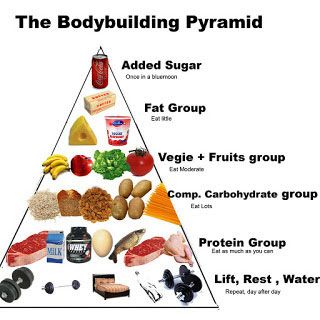Having a healthy relationship with food is crucial for overall well-being. It not only impacts our physical health but also plays a significant role in our mental and emotional well-being. A healthy relationship with food means nourishing our bodies with nutritious and balanced meals while enjoying the pleasure of eating without guilt or restrictions.
Unfortunately, many people struggle with their relationship with food. Society’s focus on appearance and unrealistic beauty standards often leads to harmful dieting practices, negative body image, and disordered eating. However, it is essential to break free from these toxic patterns and develop a positive and sustainable approach to food.
1. Embrace Intuitive Eating
Intuitive eating is an approach that encourages listening to your body’s hunger and fullness cues while honoring your cravings and preferences. It promotes the concept of eating for nourishment and pleasure rather than following strict diets or rules.
To embrace intuitive eating, start by reconnecting with your body’s signals. Eat when you’re hungry and stop when you’re comfortably full. Pay attention to the flavors, textures, and satisfaction food brings you, instead of labeling them as “good” or “bad.” By tuning into your body’s needs, you can develop a healthier relationship with food.
2. Focus on Nutrient Dense Foods
Choosing nutrient-rich foods is key to building a healthy relationship with food and your body. Opt for a wide variety of fruits, vegetables, whole grains, lean proteins, and healthy fats. These foods provide essential vitamins, minerals, and antioxidants that promote optimal health and wellbeing.
Avoid falling into restrictive diets that eliminate entire food groups or demonize specific foods. Instead, follow a balanced approach by including a wide range of nutrients in your meals. Remember, every food can have its place in a well-rounded diet, as long as you practice moderation and balance.
3. Practice Mindful Eating
Mindful eating involves paying full attention to the experience of eating, both physically and emotionally. It enables you to savor each bite, appreciate the aroma, and recognize the signs of fullness. Mindful eating also helps in distinguishing between true hunger and emotional cravings.
Avoid distractions during meals like watching TV or using electronic devices. Instead, create a calm and pleasant environment to enjoy your food fully. Chew your food slowly and savor the flavors. This process of mindful eating allows for a deeper appreciation of the nourishment and enjoyment that food brings.
4. Shift Your Focus to Body Positivity
A healthy relationship with food goes hand in hand with a positive body image. Instead of constantly striving for an unattainable ideal, embrace your body as it is and appreciate its individuality. Recognize that beauty comes in various shapes and sizes.
Avoid comparing yourself to unrealistic standards perpetuated by the media. Surround yourself with positive influences that promote body diversity and self-acceptance. Focus on engaging in activities that make you feel good, regardless of your body shape or size. Celebrate your body’s capabilities and cultivate a sense of gratitude for all it allows you to do.
5. Seek Professional Support
If you are struggling with disordered eating patterns, negative body image, or finding it challenging to establish a healthy relationship with food, consider seeking professional help.
Registered dietitians, therapists, and counselors specializing in eating disorders and body image can provide valuable guidance and support. They can help you navigate through the emotional complexities and develop personalized strategies for building a healthier relationship with food and your body. Remember, reaching out for help is a sign of strength, and it can make a significant difference in your journey towards overall well-being.
Building a healthy relationship with food and your body is an ongoing process that requires self-compassion, patience, and conscious effort. By embracing intuitive eating, focusing on nutrient-dense foods, practicing mindful eating, fostering body positivity, and seeking professional support when needed, you can create a positive and sustainable relationship with food while nourishing both your body and mind.
